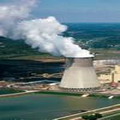 非營利組織環境保衛基金會(Environmental Defense Fund)於4月21日發表新的研究表示,在接下來的20年內,對美國一般家戶的溫室氣體排放進行總量管制的成本,將低於家戶預算的1%。
非營利組織環境保衛基金會(Environmental Defense Fund)於4月21日發表新的研究表示,在接下來的20年內,對美國一般家戶的溫室氣體排放進行總量管制的成本,將低於家戶預算的1%。
這項減少排放的預期成本對美國經濟來說是很小的,甚至不容易估算出對經濟成長的影響。然而,截至目前為止,最昂貴的政策將是「什麼事都不做」。
克歐漢(Nathaniel Keohane)博士是環境保衛基金會的經濟政策與分析的主任,曾擔任耶魯管理學院的經濟學的助理教授。他表示:「我們只需要花一點點錢,就可以負擔極具野心的氣候變遷政策。這僅僅是小小的投資,卻可以帶給我們更乾淨的空氣、新的工作機會和更安全的世界。」
布希總統因為擔心危害經濟發展,將美國自絕於京都議定書之外。京都議定書要求美國2012年的溫室氣體排放量比1990年減量5.2%。
2007年1月,道爾化學、杜邦、西門子、美鋁、福特、通用汽車、杜克能源公司、百事可樂以及六大環保團體(包括環境保衛基金會)共同組成美國氣候行動聯盟(USCAP)。
3月,美國氣候行動聯盟在他們的報告「起而行(Call for Action)」中提到,長期以來,一個強有力的、具市場機制的總量管制與交易,的確是控制溫室氣體減量成本的最佳策略。同時,這份報告也認為,必須有額外的成本控制措施來預防碳排放權價格的飆高或過度波動。
他們調查了來自政府及學術單位,五個最具聲望的經濟團隊的預測模型。包括美國能源資訊局、三角研究機構、哈佛、麻省理工學院和西北太平洋國家實驗室。
這份研究顯示,製造部門在20年內因氣候變遷政策而受衝擊的工作數目,遠比這些部門在3個月內所創造及消失的工作機會來得少。
而接下來的幾十年,每個月家庭用電與天然氣花費的成長也不過幾塊錢,完全沒有超過目前每個家庭實際生活支出的波動。
克歐漢在報告中分析模型時表示:「到了2030年1月,美國國內的生產毛額預估將會達到26兆美元。如果根據這些研究實施溫室氣體總量管制,將會延至同年4月方能達到如上水準。」
環境保衛基金會的分析請點選此處
http://www.edf.org/climatecosts.
The overall cost of capping greenhouse gases for the average American family will amount to less than one percent of household budgets over the next two decades, finds a new analysis released Monday by the nonprofit Environmental Defense Fund.
The anticipated cost to the U.S. economy of reducing emissions is small, even difficult to measure against projected economic growth, but the most expensive policy by far is to do nothing at all.
"We can afford an ambitious climate policy for just pennies on the dollar. It's a small investment that will pay off in cleaner air, new jobs, and a safer world," said Nathaniel Keohane, PhD, director of economic policy and analysis at Environmental Defense Fund, EDF, and a former associate professor of economics at the Yale School of Management.
President George W. Bush has kept the United States out of the Kyoto Protocol, which requires an average cut of 5.2 percent of greenhouse gases below 1990 levels by 2012, because of concerns that it would be bad for the U.S. economy.
Formed in January 2007, the U.S. Climate Action Partnership, USCAP, includes corporations such as Dow, Dupont, Siemens, Alcoa, Ford, General Motors, Duke Energy, and PepsiCo, and six large environmental groups, including Environmental Defense.
In its "Call for Action" last month USCAP says it recognizes that "a robust, market-based cap-and-trade approach is the best way to contain the cost of reducing greenhouse gas emissions over the long term. At the same time, it recognizes additional cost containment measures may be needed to guard against excessively high and volatile allowance prices."
The forecasting models surveyed were performed by five of the most highly respected economic modeling groups in government and academia at the Energy Information Agency, Research Triangle Institute, Harvard, the Massachusetts Institute of Technology, and Pacific Northwest National Laboratories.
The total number of jobs impacted by climate policy in the manufacturing sector over 20 years is substantially below the number of jobs created and destroyed in the sector every three months, the study shows.
And household electricity and natural gas bills rise by only a few dollars a month over the next few decades, well within the rise and fall homeowners already experience.
"Our gross domestic product is projected to reach $26 trillion in January 2030. If we capped greenhouse gases, according to these studies, the economy would hit that same mark by April," Keohane said of the models analyzed in his report.
The new Environmental Defense Fund analysis is available online at http://www.edf.org/climatecosts.
全文及圖片詳見:ENS


